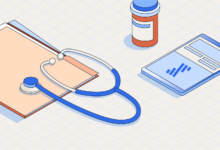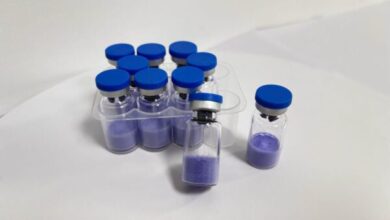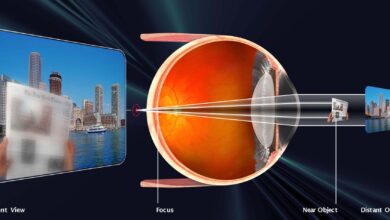
6 Things You Should Know About Treatments for Heart Disease
Did you know that for every 36 seconds, at least one person passes away from heart disease?
Heart disease is the leading cause of death in the US and is the world’s top cause of death. Heart disease can result from many risk factors such as genetics and lifestyle. Unhealthy lifestyle habits and not caring about heart health are big risk factors.
If heart disease runs in your family, you may be at risk.
If you care about yourself, it’s best to start looking into heart disease treatments. Do you want to know more about the treatments for heart disease? Read on to learn more about important factors associated with choosing treatment options.
Table of Contents
1. Know What Kind of Heart Disease You Have
Before choosing a proper treatment for your heart disease, you must first get a diagnosis. To do this, go to a doctor or specialist and ask for tests to diagnose you with heart disease. Some common methods that help diagnose heart disease include Electro diagrams or ECGs.
An ECG is one of the fast and painless ways your doctor can test you for heart disease. ECGs can help your doctor spot any abnormal heart rhythm. ECGs are non-invasive and are often read by the doctor within the same day.
Your doctor may also instruct you to have a cardiac computerized tomography. This is also known as a CT scan, which uses an X-Ray machine that collects images of your chest area and heart. A CT scan is more accurate in diagnosing heart disease with ECGs but may take more time for results.
An MRI or cardiac magnetic resonance imaging is a more advanced way of testing for heart disease. The MRI provides a more detailed image of your heart using radio waves. Depending on your condition, a doctor may ask for these or other tests before diagnosis.
2. Setting Up an Appointment
When diagnosing or getting check-ups for heart disease, there are often instructions. A doctor with a specialization in heart disease is a cardiologist. Often, these doctors need an appointment before the meeting.
Calling in before walking into the office may save you some time and money. Diagnoses often come with some pre-appointment restrictions. These pre-appointment restrictions may help you get a more accurate diagnosis.
For instance, a doctor may ask you to avoid eating or drinking certain foods that may affect test results. One test that your doctor might make you take is to check your cholesterol, that’s affected by what you eat. To save time during your appointment, you should also write down important information.
Important information includes your family history of heart disease or any other diseases. These diseases include high blood, strokes, and even diabetes. If you are experiencing any symptoms of heart disease, it is best to write them down too.
3. Lifestyle Changes for A Healthy Heart
Treatments aren’t always about medications or surgery. Most doctors recommend lifestyle changes after a person experiences heart disease. For instance, quitting smoking helps you have a healthy heart and even lowers your risk of death.
Changes that help include avoiding or limiting both alcohol and caffeine. Both these drinks make changes in your blood pressure, increasing heart disease risk. Exercising more and eating a healthier diet help you prevent any heart problems.
4. Medications for Heart Disease
The medication prescribed by your doctor may depend on your situation or condition. A common medication for heart disease is ACE Inhibitors. ACE stands for Angiotensin-converting enzyme.
ACE Inhibitors help your heart function better by widening the blood vessels. This helps raise the amount of blood becoming pumped by your heart. This, in turn, lowers your blood pressure which decreases your chances of any attacks.
Other kinds of medications help ease the other symptoms of heart disease. Diuretics are a prime example of this. Diuretics help excrete excess water and salt, a common issue with heart disease.
When getting prescribed, it is important to inform your doctor of any allergies. It’s important to disclose other medications to avoid adverse effects. If the medication is not working on you or is affecting you, inform your doctor.
5. Treatments for Heart Disease
There are many treatments for heart disease. For instance, it is common for people with blocked heart arteries to get an angioplasty. An angioplasty is a surgery that cuts heart arteries to avoid blockage.
Some people might need pacemakers, a small device that helps the heart muscle. A pacemaker can help someone who’s had heart failure or a heart that can no longer function. This device helps treat many diseases such as cardiomyopathy and congestive heart failure.
When it comes to treatments for heart disease, new and innovative ways are always found. New research has found that enhancing heart function and cycling of calcium helps. Dr. Kenneth Chien is one of these doctors for next-generation therapeutics.
This treatment is under channel calcium channel blocker medication. This helps relax your blood vessels, increasing the oxygen supply to your heart. This decreases the risk of heart failure and helps lessen the workload of your heart.
6. Seeking Support After Diagnosis or Treatment
Getting a diagnosis or suffering from heart disease can be life-changing. That is why it is important to get proper support to help you improve your condition. If you are feeling frustrated or overwhelmed, there are many ways you can ease these feelings.
Your doctor may tell you to undergo cardiac rehabilitation, which comes after surgery. This helps improve your heart health by speeding up the recovery process. This rehabilitation comes with counseling, support, and education to help you adjust.
If you have any close family or friends, you can always lean on them for support. If you need professional help, always ask a doctor or specialist. There are also many support groups for people with heart disease.
Look More Into Treatments for Heart Disease Today
These are only six of the many treatments for heart disease available on the market today. Follow this helpful guide, and you are sure to find a heart disease treatment that is right for you.
Caring about your heart health is the first step in getting a healthy heart. Take a moment to check out our other blog posts and how you can improve your health.








